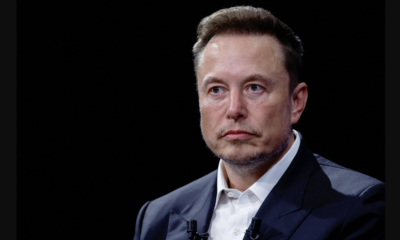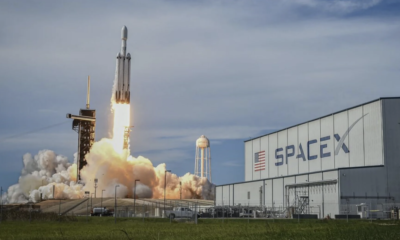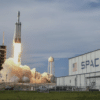Space Plunge
Toyota Enters the Space Race with $45M Investment in Rocket Technology
In a groundbreaking announcement at CES 2025, Toyota Motor revealed its foray into the space industry, pledging a $44.4 million (7 billion yen) investment in Interstellar Technologies, a Japanese private spaceflight company. Toyota Chairman Akio Toyoda unveiled the initiative, underscoring the automaker’s ambition to extend mobility beyond Earth, echoing a sentiment reminiscent of Tesla CEO Elon Musk’s SpaceX aspirations.
“We are exploring rockets too, because the future of mobility shouldn’t be limited to just Earth—or just one car company,” Akido Toyoda declared, drawing attention to the growing competition in the emerging space economy.
Aiming for Space Leadership
The collaboration between Toyota’s Woven by Toyota brand and Interstellar Technologies aims to advance Japan’s capabilities in satellite launches, an area where the nation lags significantly. In 2023, Japan managed only three launches, compared to 116 by the United States and 63 by China.
Hajime Kumabe, CEO of Woven by Toyota, emphasized the automaker’s goal to leverage its expertise in mass production to revolutionize rocket manufacturing. “We hope to advance rocket production and further drive mobility transformation,” Kumabe said.
Interstellar Technologies, founded in 2013, has already achieved milestones with seven small suborbital MOMO rocket launches, which first reached space in 2019. The startup now aims to develop larger, orbital-class rockets, such as ZERO and DECA, designed to meet the demands of the 2030s space industry.
Competing on the Global Stage
Toyota’s entry into the space sector pits it against Mitsubishi Heavy Industries (MHI), a subsidiary of the carmaker’s competitor, Mitsubishi. MHI has long dominated Japan’s government-funded space missions, notably with the H3 rocket series developed for the Japan Aerospace Exploration Agency (JAXA).
However, MHI’s H3 program faced delays, allowing Toyota to position itself as a challenger in private-sector and international launches. This strategy mirrors SpaceX’s approach, whose Falcon 9 rockets dominate the commercial launch market.
Expanding the Vision of Mobility
Toyota’s investment in space exploration aligns with its broader mission to redefine mobility. At CES 2025, the automaker also announced the completion of the first phase of Woven City, a prototype smart city at the base of Japan’s Mount Fuji.
The 175-acre site now hosts residential housing and is a testbed for emerging technologies, including autonomous vehicles and advanced robotics. “The point of Woven City is not to make money,” Toyoda explained, “but to act as a test course for emerging technologies.”
Toyota’s bold move into space exploration signals its commitment to pushing the boundaries of innovation. By partnering with Interstellar Technologies and developing infrastructure like Woven City, the automaker aims to lead on Earth and in the nascent space economy.
As Interstellar develops its next-generation rockets, Toyota’s investment could prove pivotal in transforming Japan’s space industry into a competitive force on the global stage.
Maruti Suzuki and Toyota collaborate on new SUV to tackle competitors











































